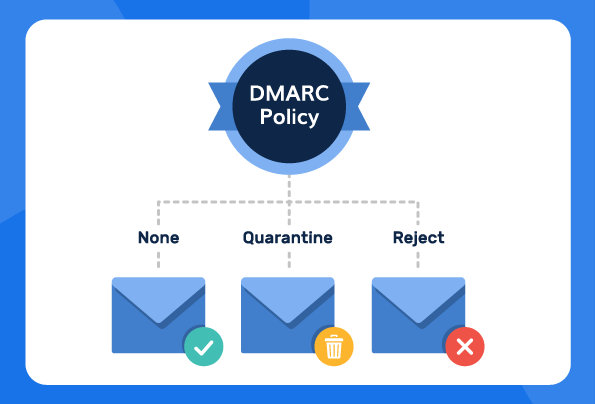
Unveiling DMARC: Elevating Email Deliverability, Security, and Brand Trust
Introduction:
In the age of digital communication, where email serves as a lifeline for businesses, the significance of ensuring secure, authentic, and trustworthy email communication cannot be overstated. Phishing attacks, email fraud, and brand impersonation have become pervasive threats, demanding a robust solution. Enter DMARC (Domain-based Message Authentication, Reporting, and Conformance), the linchpin for email deliverability, security, and brand protection. This article explores the compelling reasons why email authentication, particularly through DMARC, is no longer optional but a critical necessity for reaching prospects, serving customers, and safeguarding brand integrity.
- Navigating the Email Threat Landscape: The PDF from Proofpoint provides valuable insights into the evolving threat landscape of email. Phishing attacks are becoming increasingly sophisticated, with cybercriminals exploiting vulnerabilities in traditional email systems. DMARC emerges as a strategic defense, offering protection against domain impersonation and ensuring that your recipients receive only legitimate and secure emails.
- Proofpoint’s Expertise: Leveraging Proofpoint’s expertise, the PDF outlines the fundamental principles and best practices for implementing DMARC effectively. It serves as a comprehensive guide for businesses, from understanding the basics of DMARC to navigating the complexities of deployment. By following the recommendations outlined in the PDF, organizations can fortify their email infrastructure against a multitude of threats.
- Building Customer Trust: Trust is the cornerstone of any successful business relationship. The PDF emphasizes how DMARC plays a pivotal role in building and maintaining customer trust. By implementing DMARC, organizations not only protect their customers from falling prey to phishing scams but also demonstrate a commitment to the highest standards of email security. This trust-building factor can lead to increased customer loyalty and positive brand perception.
- Legal and Regulatory Compliance: In an era of heightened data protection regulations, businesses face the imperative to comply with stringent security standards. DMARC aligns seamlessly with these regulatory requirements, providing a framework for email authentication that safeguards sensitive information. Compliance not only mitigates legal risks but also reinforces an organization’s dedication to maintaining the utmost levels of data security.
- Elevating Email Deliverability: Email deliverability is a pivotal metric for effective communication. The PDF underscores how DMARC significantly enhances deliverability rates by reducing the chances of legitimate emails being marked as spam. As ISPs increasingly prioritize authenticated emails, DMARC becomes an indispensable tool for ensuring that your messages reach the intended recipients’ inboxes.
Conclusion:
In a landscape where cyber threats loom large, DMARC emerges as the key to unlocking secure, reliable, and trustworthy email communication. The insights from Proofpoint’s PDF serve as a valuable resource for organizations seeking to fortify their email infrastructure and protect their brand from email fraud. By prioritizing DMARC implementation, businesses can not only mitigate the risks associated with phishing attacks but also elevate customer trust and ensure their emails reach the right audience. In essence, DMARC is no longer an option but a critical necessity for businesses looking to thrive in the digital age while safeguarding their brand and customer relationships.
